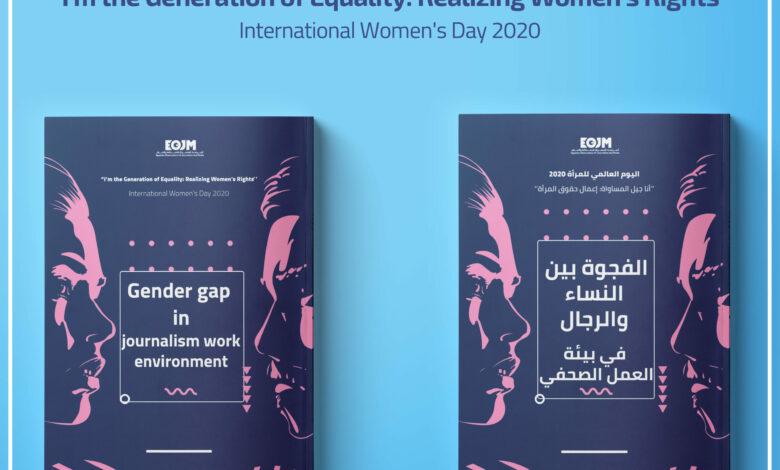Gender gap in journalism work environment (Research Paper)

To Read The Paper CLICK HERE
Women have been working in the journalistic profession in Egypt since the late nineteenth
century, and today their presence appears strongly on the field of journalistic work,
competing effectively with their male counterparts, covering events, demonstrations and
clashes that they do not fear and do not place their gender as an obstacle to proving
themselves. Perhaps the killing of journalist Mayada Ashraf While covering violent events
that took place in Ain Shams, east of Cairo, in 2014, the biggest evidence for women
storming areas that were previously assumed to be suitable only for men, However, there
are still some observations that make us wonder whether female journalists are looked at
based on their work and competence or other basis are taken into consideration. Women
are usually exploited in workplace as a cheap labor bower, that helps capital accumulation
of employers, in addition to the prevailing custom in Egyptian society that considers the
man as the main breadwinner of the family and therefore is distinguished by a higher wage
than females who work in the same job and perform the same tasks, so we needed to ask
whether female journalists are treated with a discriminatory way based on their gender
when it comes to wages, despite the requirements of the job like confrontation, boldness,
and courage? a
In addition to another problem regarding their presence in leadership positions, despite the
large number of female journalists in Egypt, which represents about a third of the
syndicate, female journalists are absent from leadership roles and editorial leadership in a
manner which doesn't represent their number in the work field, and therefore this calls
attention to the reason for this phenomenon and does this happen because of a
discrimination or other reasons?
In addition to the syndicate representation of women who are permanently absent from the
Syndicate Council, no woman won a seat in the Syndicate of Journalists, therefore all
these problems were a motive for research on the women situation in the Egyptian press
regarding the economic situation, career advancement, and syndicate representation, in
order to know if there is economical discrimination against female journalists due their
gender, such as inequality in wages with their male colleagues who occupy the same
employment positions, career advancement, and whether female journalists are ignored
out of arbitrariness when it comes to job promotions because of their gender, in addition to
social empowerment with regard to syndicate representation, and does the syndicate truly
represent them and their needs? To find out about these aspects, this report is divided into
the following:
First: gender discrimination in wages.
Second: Discrimination in career advancement on the basis of gender.
Third: Women journalists and their syndicate representation.
